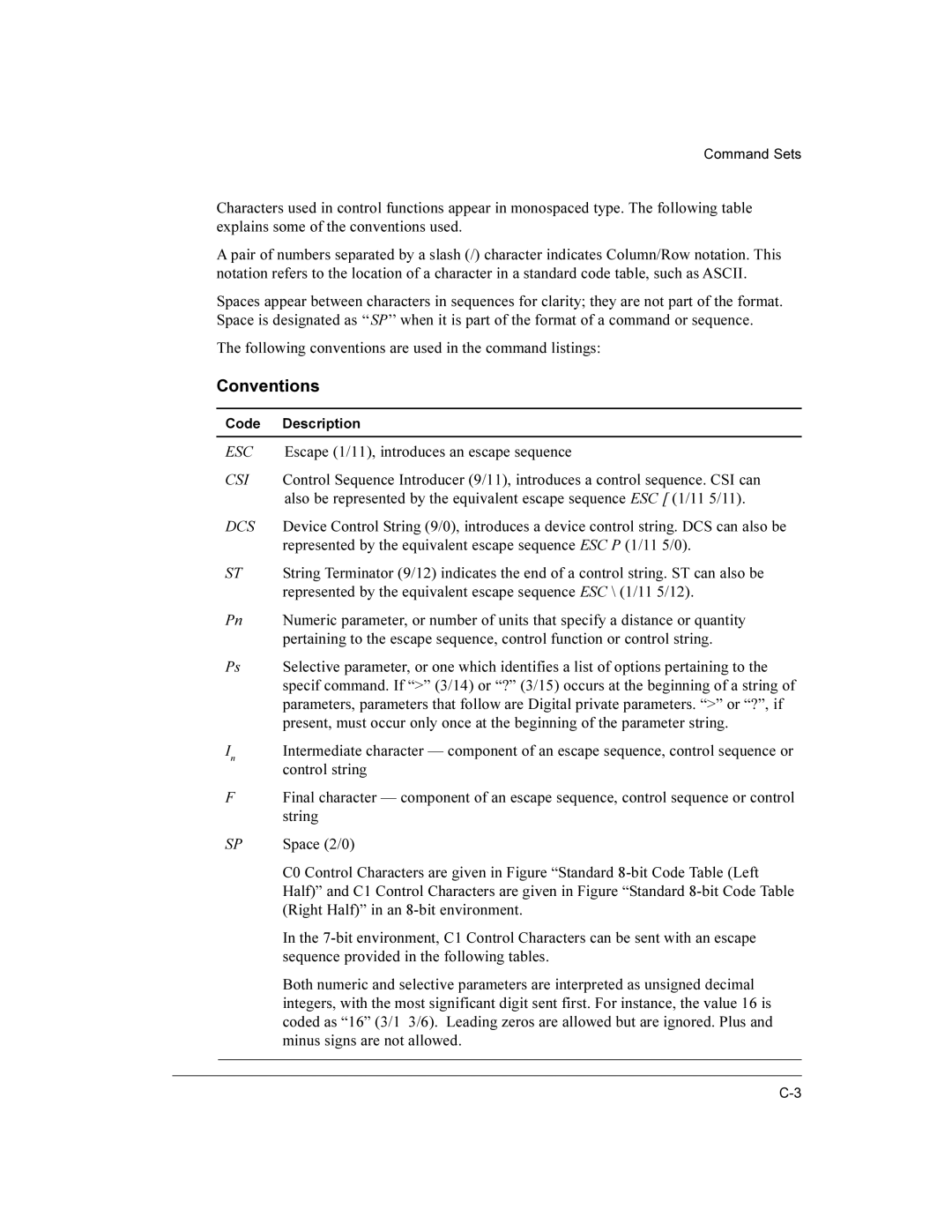
Command Sets
Characters used in control functions appear in monospaced type. The following table explains some of the conventions used.
A pair of numbers separated by a slash (/) character indicates Column/Row notation. This notation refers to the location of a character in a standard code table, such as ASCII.
Spaces appear between characters in sequences for clarity; they are not part of the format. Space is designated as ‘‘SP’’ when it is part of the format of a command or sequence.
The following conventions are used in the command listings:
Conventions
Code | Description |
|
|
ESC | Escape (1/11), introduces an escape sequence |
CSI | Control Sequence Introducer (9/11), introduces a control sequence. CSI can |
| also be represented by the equivalent escape sequence ESC [ (1/11 5/11). |
DCS | Device Control String (9/0), introduces a device control string. DCS can also be |
| represented by the equivalent escape sequence ESC P (1/11 5/0). |
ST | String Terminator (9/12) indicates the end of a control string. ST can also be |
| represented by the equivalent escape sequence ESC \ (1/11 5/12). |
Pn | Numeric parameter, or number of units that specify a distance or quantity |
| pertaining to the escape sequence, control function or control string. |
Ps | Selective parameter, or one which identifies a list of options pertaining to the |
| specif command. If “>” (3/14) or “?” (3/15) occurs at the beginning of a string of |
| parameters, parameters that follow are Digital private parameters. “>” or “?”, if |
| present, must occur only once at the beginning of the parameter string. |
In | Intermediate character — component of an escape sequence, control sequence or |
| control string |
FFinal character — component of an escape sequence, control sequence or control string
SP Space (2/0)
C0 Control Characters are given in Figure “Standard
In the
Both numeric and selective parameters are interpreted as unsigned decimal integers, with the most significant digit sent first. For instance, the value 16 is coded as “16” (3/1 3/6). Leading zeros are allowed but are ignored. Plus and minus signs are not allowed.
